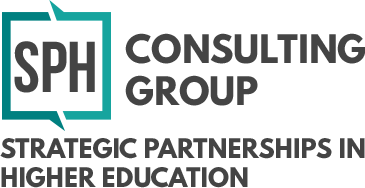Tell Me Your Story…. How Storytelling Can Help Guide Your Institution’s Transformation
May 15, 2023

As we navigate the increasingly choppy waters of higher education, we must remember a key fundamental – stories are how we communicate around complexity. Stories have been central to human communication for thousands of years. From 30,000-year-old cave paintings in France, to the blockbuster opening of Top Gun: Maverick last summer, we are clearly drawn to a good story.
Why is the narrative form so powerful and so popular? I believe it is due to two key features: the way stories engage our senses and the work that stories do for us.
Stories engage more areas of our brain as we read or listen to them. Unlike “info dumps” in endless PowerPoint slide decks, good stories use language to help us see, hear, feel, and taste things from another place and time. They draw on our sense memories to stir our emotions.
Because they so fully engage us, stories can be powerful. They influence who we think we are, how we are connected to others, and they motivate us to do what we do and believe what we believe.
Our institutions are fundamentally shaped by the stories we tell about our origins, our history, and our work together. They are the most powerful creators and sustainers of our organization’s identity and culture.
Do you know what your organization’s most important stories are? Do you know who is telling your stories?
As you consider changes to your organization, such as a new name, new brand campaign, a merger or a significant evolution in mission and vision, have you considered how those changes will impact the story your organization shares about itself? Will the changes be a new chapter or a total re-write of your story?
Have you, also, considered how your stories can help manage the change you are planning, leveraging your culture to make your change successful?
As you think through these questions, here are some storytelling principles to keep in mind:
- The leader of an organization should be its “storyteller-in-chief”. An organization’s stories should be incorporated into leadership communication strategies.
- Your story should have a “plot” that is consistent with your mission, vision, and values. The plot is what moves the story forward. Your mission, vision, and values should provide the energy and motivation that propels your organization forward to overcome challenges.
- Every good story has a protagonist. Your people should be the heroes of your story.
- Every good story has an obstacle created by an antagonist. Be sure to identify who or what is standing between your organization and its people and success, and how those challenges were or will be overcome.
- Good stories make sense to people—there is a logic to them. Think about the movie or television show that flops because it is incoherent, too far-fetched or because the characters do not behave in the way we would behave if we were in their shoes. Make sure your story is credible, that it is internally consistent and that it makes sense with what we generally know about human behavior.
- Stories that last the test of time and serve as the bedrocks of an organization’s culture shape the way new facts and stories are evaluated. As a result, change must account for an institution’s past.
- Language is powerful. The difference between someone who merely provides information, and a good storyteller is that the storyteller uses language to engage the senses and call upon the values of their constituents. The right language can make a story much more powerful.
As you begin to consider major opportunities for your institution, such as a merger, acquisition, consolidation, or even closure, let SPH Consulting Group help you craft and communicate that story. A story that will help you and your organization achieve its goals and vision.
To learn more about SPH Consulting Group and how we can help your organization, contact office@sphconsultinggroup.com.
Writer: Karla Leeper, Senior Consultant, SPH Consulting Group.
